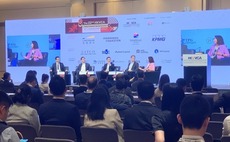
And the second shall be first
Secondary deals, forecast for months now to see significant new volume across Asia Pacific, are fulfilling those predictions, as GPs pass investees from hand to hand.
This week's announcement of Platinum Equity's sale of the Asian assets of Acument Global Technologies to CVC Capital Partners, coming soon after the latest news of Bain Capital's sale of the Asian chains in its Australian-flavored Outback Steakhouse restaurant investee, are only the latest developments to underwrite the trend.
Secondary buyouts, already accounting for a major share of European buyout activity in particular, have also gained extra momentum post the GFC, as funds nearing the end of their life cycles look to invest their capital overhang after 18 months+ of slack markets, or to demonstrate returns through exits.
Aside from LPs' objections to potentially getting the same asset twice through separate funds, and only paper gains when one investee fund sells to another, the fundamental issue with secondaries has always been post-investment performance. Can a secondary buyer find or create value in an asset that another manager has already owned? In Asia Pacific, actually, there are some reasons to think that secondaries might do better than elsewhere.
For one thing, the rapid growth and generational life cycle of Asia Pacific private equity means that some GP sellers may exit to buyers with radically different capabilities, some of them perhaps not even in the region when the original investment was done. Arysta Lifescience in Japan is one of the best examples: sold for $2.2 billion in 2007 by Olympus Capital Holdings Asia, which has invested $1.3 billion since 1997 and first invested Arysta in 2002, to Permira, which has current committed capital of around $28 billion, and debuted in Asia in 2007 with Arysta and Galaxy Entertainment. Permira's sizeable capabilities may even justify the rich Arysta purchase price.
For another, initiatives like the Acument and Outback deals, where Asian arms are essentially being spun off from Western private equity-owned parents, could potentially deliver higher performance underpinned by Asian growth once split off from their less dynamic traditional markets. In Acument's case, the company's German arm went bankrupt at about the same time its Asian assets were put on the market by Platinum Equity.
But the GPs' incentives to buy and sell the assets turn primarily around the vintage of many of the region's big billion-dollar buyout funds, closed around 2006-07, and now mostly halfway through their investment period with almost two years spent overall in treading water and supporting portfolio companies. Bain & Co.'s Global Private Equity Report 2010 concluded that there was some $500 billion of buyout capital, and up to $1 trillion of total private equity capital overhang, worldwide from the 2005-08 vintages. Pressure to find homes for the remaining capital, and deliver returns for LPs ready for the next go-round, is building.
As LPs affirm to AVCJ, they may complain at issues surrounding secondary buyouts, but most accept them as the way of the world. And Asia Pacific is probably overdue to deliver such deals anyway, now that the first bloc of assets acquired half a fund life cycle ago are reaching maturity. Industry-watchers will be looking out for valuations, for signs of a jump in post-investment performance, and at the size and capability match between buyers and sellers. There are going to be plenty of data points to choose from.
Latest News
Asian GPs slow implementation of ESG policies - survey
Asia-based private equity firms are assigning more dedicated resources to environment, social, and governance (ESG) programmes, but policy changes have slowed in the past 12 months, in part due to concerns raised internally and by LPs, according to a...
Singapore fintech start-up LXA gets $10m seed round
New Enterprise Associates (NEA) has led a USD 10m seed round for Singapore’s LXA, a financial technology start-up launched by a former Asia senior executive at The Blackstone Group.
India's InCred announces $60m round, claims unicorn status
Indian non-bank lender InCred Financial Services said it has received INR 5bn (USD 60m) at a valuation of at least USD 1bn from unnamed investors including “a global private equity fund.”
Insight leads $50m round for Australia's Roller
Insight Partners has led a USD 50m round for Australia’s Roller, a venue management software provider specializing in family fun parks.







